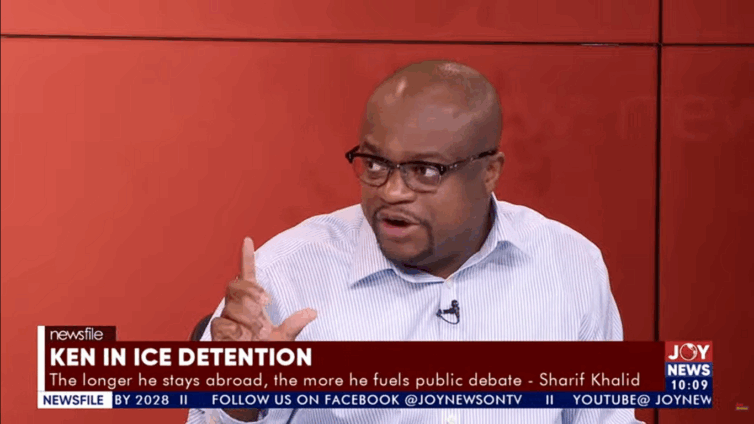Doctors' Strike Fury: Billion-Pound Bill Looms as Health System Faces 'Reckless' Action

A significant five-day strike by resident doctors in England, the 13th industrial action since 2022, is set to commence on Friday. This walkout has drawn stern warnings from Health Secretary Wes Streeting, who cautioned that the strike could burden the NHS with costs approaching 'a quarter of a billion pounds'. Streeting described the action as 'self-defeating', not only disrupting patient care but also harming the doctors' own interests.
The timing of the industrial action is particularly concerning as it coincides with what is feared to be Britain's worst flu season on record. Recent figures highlight a 60 percent increase in flu hospital admissions in a single week, with cases in England three times higher than typical levels, adding immense pressure to an already strained health service.
Health Secretary Wes Streeting has strongly criticized the British Medical Association (BMA), the union representing resident doctors (formerly known as junior doctors). He contended that resident doctors have received a 28.9 percent pay rise over the past three years, which he described as the 'highest pay increase of the entire public sector' for two consecutive years. Despite this, he affirmed that he would not yield further on pay, citing public financial constraints. Streeting warned that if the strike proceeds, costing the NHS a quarter of a billion pounds, other additional measures he had offered, such as more specialist training places and help with exam fees, would no longer be affordable this year. He made a last-minute appeal to the chair of the BMA resident doctors' committee to avert the walkout, after an earlier package of measures was rejected by the union within just four hours.
Conversely, BMA bosses maintain that they were left with 'little option but to call for strike action' due to the Government's failure to present a 'credible offer' regarding jobs and pay. The BMA asserts that first-year resident doctor pay has diminished by 21 percent in real terms since 2008, based on the Retail Price Index (RPI) which includes housing costs. They advocate for pay to be restored to levels from 17 years ago, when they believe the value of their pay began to erode. However, the Government refutes the use of RPI, deeming it outdated, and instead employs the Consumer Prices Index (CPI) – which focuses on goods and services – to calculate inflation and argue that current resident doctors' pay is fair. An analysis by the Nuffield Trust health think tank suggests a 5 percent pay fall since 2008 if CPI is utilized.
In response to the impending strike, NHS England chief executive Sir Jim Mackey has instructed all NHS trust leaders to proceed with nearly all planned operations. Sir Jim urged a 'laser focus' on four critical areas: maintaining emergency care and maternity services, ensuring efficient patient discharge, sustaining at least 95 percent of elective activity, and safeguarding priority treatments, including urgent planned surgery and cancer care.
Resident doctors constitute approximately half of all doctors within the NHS. Their basic salary in England begins at £38,831 during their first foundation year, increasing to £44,439 in their second year. Salaries can reach around £70,000 after eight or more years. These medics frequently work night shifts, weekends, and extended hours, often receiving extra payments for such commitments.
Public sentiment regarding the strike has shifted, according to a recent YouGov poll. While 48 percent of Britons oppose the resident doctors' strike and 39 percent support it, this marks a change from last summer when a majority of 52 percent backed the industrial action by junior doctors.
You may also like...
When Sacred Calendars Align: What a Rare Religious Overlap Can Teach Us

As Lent, Ramadan, and the Lunar calendar converge in February 2026, this short piece explores religious tolerance, commu...
Arsenal Under Fire: Arteta Defiantly Rejects 'Bottlers' Label Amid Title Race Nerves!

Mikel Arteta vehemently denies accusations of Arsenal being "bottlers" following a stumble against Wolves, which handed ...
Sensational Transfer Buzz: Casemiro Linked with Messi or Ronaldo Reunion Post-Man Utd Exit!

The latest transfer window sees major shifts as Manchester United's Casemiro draws interest from Inter Miami and Al Nass...
WBD Deal Heats Up: Netflix Co-CEO Fights for Takeover Amid DOJ Approval Claims!

Netflix co-CEO Ted Sarandos is vigorously advocating for the company's $83 billion acquisition of Warner Bros. Discovery...
KPop Demon Hunters' Stars and Songwriters Celebrate Lunar New Year Success!

Brooks Brothers and Gold House celebrated Lunar New Year with a celebrity-filled dinner in Beverly Hills, featuring rema...
Life-Saving Breakthrough: New US-Backed HIV Injection to Reach Thousands in Zimbabwe

The United States is backing a new twice-yearly HIV prevention injection, lenacapavir (LEN), for 271,000 people in Zimba...
OpenAI's Moral Crossroads: Nearly Tipped Off Police About School Shooter Threat Months Ago
ChatGPT-maker OpenAI disclosed it had identified Jesse Van Rootselaar's account for violent activities last year, prior ...
MTN Nigeria's Market Soars: Stock Hits Record High Post $6.2B Deal

MTN Nigeria's shares surged to a record high following MTN Group's $6.2 billion acquisition of IHS Towers. This strategi...





